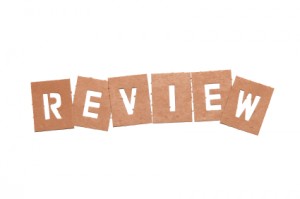True genius resides in the capacity for evaluation of uncertain, hazardous, and conflicting information.
Winston Churchill
What do we want to know? What do we want to count?
What we want to know is linked to what we think is important. For most non profits,what we think is important is linked to our values.
What do you monitor? What do you evaluate… and why?
When you monitor or evaluate anything, you are saying to the world “THIS” is what I value, this is what I care about, this is what I invest in. Before I go on I need you to sit down. I am about to say something that many of you may not agree with.
Most NPO’s can not handle the truth. They are not ready to ask the hard questions or do the dirty introspection required.
So, here is the critical question: Is what we are doing and how we are doing it meeting the spirit, tone and heart of our values?
We need to take a step back and see if our monitoring and evaluation systems give us the only information that truly matters:
- Who is benefiting from what we do? How much are they benefiting?
- Are beneficiaries passive recipients or does the process enable them to have some control over their lives, are they actively engaged?
- Are there lessons in what we are doing that have a broader impact than just what is happening on our project?Are we capturing these lessons?
- Can what we are doing be sustained in some way for the long-term, or will the impact of our work cease when we leave?
What’s most import- the product or the process?
Although the term “monitoring and evaluation” tends to get run together as if it is only one thing, monitoring and evaluation are, in fact, two distinct sets of organisational activities, related but not identical.
Monitoring is the collection and analysis of information as a project progresses. It is all about improving the efficiency and effectiveness of a project or organisation. It helps to keep the work on track, and can let management know when things are going wrong. If done properly, it is an invaluable tool for good management, and it provides a useful base for evaluation. It enables you to determine whether the resources you have available are sufficient and are being well used, whether the capacity you have is sufficient and appropriate, and whether you are doing what you planned to do.
Evaluation is the comparison of actual project impacts against the agreed strategic plans.
They both should at all times be focusing on:
- Efficiency
- Effectiveness
- Impact
Why do monitoring and evaluation?
In many organisations, “monitoring and evaluation” is something that that is seen as a donor requirement rather than a management tool. Donors have every right to know whether their money is being properly spent, and used effectively. But the most important use of monitoring and evaluation should be for the organisation or project itself to see how it is doing against objectives, whether it is having an impact, whether it is working efficiently, and to learn how to do it better and in some cases specifically to manage risk. Getting something wrong is not a crime. Failing to learn from past mistakes because you are not monitoring and evaluating, is.
Here is where I get on my soapbox and I take us back to the title of the post. You can’t handle the truth.
I am not sure NPO’s want to know the truth. Because knowing the TRUTH means we have to act. We work with real people with real challenges. This makes our work complex and messy and most days swimming in the “grey”. Projects that we think will take a year sometime take three. And knowing the facts, having that hard data at our fingertips mean we have to make hard choices. Really hard decisions about funding and staffing and resource allocation.In these tight economic times these discussion become even harder to have.So sit up straight and listen, see, hear and speak your truth. Push yourselves and your boards and your leadership to invest in evaluation and monitoring tools. Create a culture that values data.
We have to advocate for solutions based on analysis. Bold vision and planning have to be linked to financial support and leadership needs good information so they can question assumptions and challenge conclusions.
So we all can do good, better.

